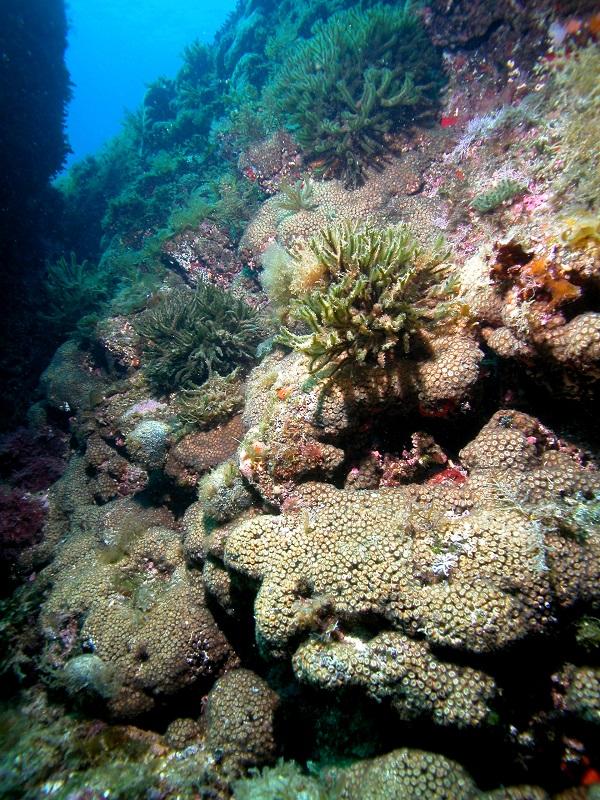Heatwaves in the Mediterranean

Credit: Diego Kersting
Some corals can recover after massive mortality episodes caused by the water temperature rise. This survival mechanism in the marine environment -known as rejuvenation- had only been described in some fossil corals so far. A new study published in the journal Science Advances reveals the first scientific evidence of the rejuvenation phenomenon in vivo in Cladocora caespitosa coral colonies, in the marine reserve in Columbrets, in the coast of Castellón (Spain).
The authors of the study are the experts Diego Kersting and Cristina Linares, from the Department of Evolutionary Biology, Ecology and Environmental Sciences from the Faculty of Biology and the Biodiversity Research Institute (IRBio) of the University of Barcelona.
Heatwaves, more and more common in the Mediterranean
The Mediterranean Sea is one of the most affected areas by the climate change and the increase of heatwaves. “We are used to hear and read on the general impacts related to the climate change, but we rarely get news on the life recovery after impacts related to global warming”, says Diego Kersting, first author of the article and researcher at the Free University of Berlin (Germany).
Since 2002, Kersting and Linares have been monitoring 250 coral colonies of Cladocora caespitosa in the marine reserve in Columbrets, an area for studies on the effects of climate change on the marine environment. This coral -the only one able to create reefs in the Mediterranean Sea- is listed as an endangered species, mainly because of the mortalities associated with global warming.
Experts had described that the unusual rise of water temperature in summer was killing many of these Mediterranean coral colonies. For instance, during the summer of 2003, one of the hottest ones, “the 25% of the surface occupied by these corals in Columbrets disappeared due a loss of the colonies”, says the authors of the study.
Some coral polyps survive under extreme conditions
In a Mediterranean Sea with higher and higher temperatures and frequent heatwaves, the survival alarms for these species had already rang. However, the long-run monitoring of the coral in Columbrets revealed a surprising result: some coral colonies that were considered lost years ago show some living parts.
According to the experts, this kind of recuperation was possible thanks to a procedure named rejuvenation. In particular, under stress conditions -for instance, excessive water warming-, some polyps in the coral colonies which are dying are able to become smaller until they can abandon their calcareous skeleton.
In this reduced state, these polyps can survive under extreme conditions which cause the death of the other polyps in the colony. When conditions improve, polyps recover its common size and form a new calcareous skeleton. Afterwards, they reproduce by budding until they can recover the dead colony again.
A hidden survival strategy
According to the authors, this survival strategy had been unnoticed until now due the external good image the colonies show once they have recovered, which masks the mortality that had taken place before. “The real story of these colonies can only be found if controlled every year, over the years, or if we study the skeleton, since the process leaves characteristic features!, warn Kersting and Linares.
So far, researchers had found signs of this rejuvenation only in Paleozoic corals, which lived hundreds of millions of years ago. Therefore, the results of this study will enable making comparisons between the in vivo observations and the description through the fossils, and therefore knowing the implication of these kinds of survival processes and adaptation in corals.
This discovery provides new perspectives for the survival of the only reef coral in the Mediterranean, which has a slow growth -about 3 mm per year- and a limited ability to create new colonies. “However, it is hard for these mechanisms to balance the serious increase of the frequency and severity of the heatwaves in the Mediterranean, so it is necessary to act urgently in order to slow the causes of climate change, and dedicate enough resources to maintain these monitoring procedures in the long run”, warn the authors.
###
Media Contact
Rosa Martínez
[email protected]
0034-934-035-544
Original Source
https:/
Related Journal Article
http://dx.




